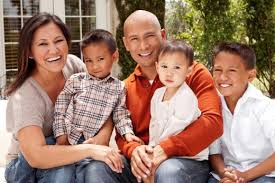<p style="text-align: justify;">Over 1.5 million adoptions take place in the United States each year. Prior to 1996, the percentage of infants given up for adoption was 9% but has dropped dramatically to about 1%. Foreign adoptions by U.S. citizens continues to increase with more than two-thirds of the adoptable children coming from China, Ethiopia, Russia, So. Korea, and Guatemala.</p>
<h2 style="text-align: justify;"><b>Agency Adoptions</b></h2>
<p style="text-align: justify;">The most familiar type of adoption is one transacted through a traditional adoption agency. According to the DePaul School Blog, an agency can be public or private and both are regulated and licensed by the state in which they conduct business. Abused, abandoned, and sometimes orphaned children become wards of the state, and public agencies normally handle the adoptions in these cases. The agency will place the child with adoptive parents that have been thoroughly screened by the state. Charities and social service organizations run the majority of private placement agencies. The children adopted out are usually brought directly to the organization by parents or expectant parents believing this will be the best option for their child.</p>
<h2 style="text-align: justify;"><b>Independent Adoptions</b></h2>
<p style="text-align: justify;">An independent adoption is the result of direct contact between the birth parents and the prospective adoptive parents. Often a member if the clergy or the family physician acts as a go-between to make the process more comfortable for both parties. Open adoptions are a type of independent adoption allowing the birth mother and child a limited amount of contact after the adoption takes place. Independent adoptions can be very complicated, and it is always best for the adoptive parents to retain an attorney with previous experience in adoptions. Before considering an independent adoption, check to see if they are allowed in your state and how strictly they are regulated.</p>
<h2 style="text-align: justify;"><b>Identified Adoptions</b></h2>
<p style="text-align: justify;">This type of adoption is fairly common and is the result of cooperation between an independent adoption and an agency adoption. When adoptive parents have found an expectant mother who has decided to place her baby for adoption, all the people involved contact a private agency to take over the actual legal process. There are advantages to this method, including all of the counseling and professionals services the agency provides, but without being put on a waiting list. This gives the adoptive parents control over the child they choose to adopt, rather than the first child that is available.</p>
<h2 style="text-align: justify;"><b>International Adoptions</b></h2>
<p style="text-align: justify;">Find Law explains how international adoptions are the most complicated type. In order to adopt a foreign child you must deal with two sets of laws, which include the laws of the host country as well as your state and both must be satisfied. You will be required to obtain an immigrant visa for the child through the U.S. Citizenship and Immigration Services (USCIS). Once the child is approved for adoption, U.S. citizenship will be granted when the child enters the United States. Whether you choose to adopt a child born in the United States or proceed with a foreign adoption, seek competent and experienced legal counsel to avoid making mistakes that could destroy your chances of adopting.</p>

Is Adoption The Right Choice For You?
